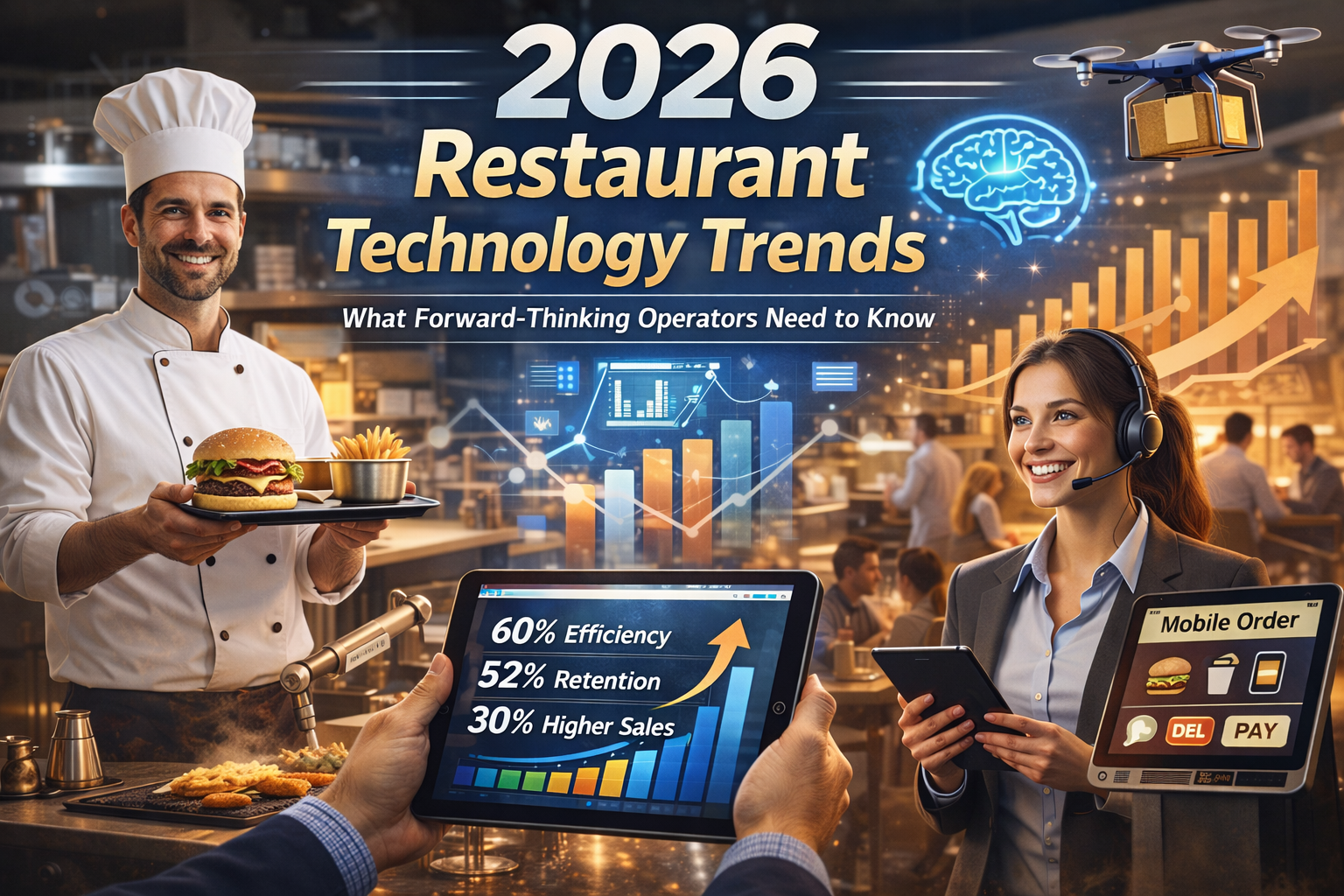
The Future of Restaurant Payment Systems

Payment systems are evolving rapidly; from swiping to chips to being able to touch and go, payment systems are always trying to find newer and easier ways to integrate into everyday life. Emerging trends like contactless payments, mobile wallets, and even cryptocurrency are revolutionizing how customers settle their bills. For restaurants, this shift aligns with changing consumer preferences and presents an opportunity to streamline operations and enhance the customer experience. However, adopting these technologies comes with its own set of challenges.
Contactless Payments: A Leap Towards Efficiency
Contactless payments, including NFC (Near Field Communication) and RFID (Radio Frequency Identification) technologies, have gained significant traction. This method lets customers pay by tapping their card or smartphone near a POS terminal.
Benefits:
- Speed and Convenience: Contactless payments are faster than traditional card swiping or cash transactions, leading to reduced wait times for customers.
- Enhanced Customer Experience: The ease of use provides a seamless payment experience, increasing customer satisfaction.
- Reduced Physical Contact: In a post-pandemic world, minimizing physical contact is a priority for many customers, making contactless payments an attractive option.
- Security: These payments are secured with dynamic encryption, making them safer than magnetic stripe cards.
Challenges:
- Technology and Infrastructure Investment: Implementing contactless payment requires upgrading POS systems, which can be a significant investment for some restaurants.
- Security Concerns: Despite encryption, there are concerns about the interception of RFID signals and potential fraud.
Mobile Wallets: Merging Technology with Transactions
Mobile wallets like Apple Pay, Google Pay, and Samsung Pay have become increasingly popular. These wallets store payment information on a mobile device, allowing smartphone payments.
Benefits:
- Enhanced Security: Mobile wallets use tokenization, where card details are replaced with a token, thereby reducing the risk of card information theft.
- Loyalty Integration: They can be integrated with loyalty programs, offering a more comprehensive customer experience.
- Data Collection: Mobile wallets can provide valuable data on customer preferences and spending habits, aiding in personalized marketing efforts.
Challenges:
- Compatibility and Interoperability: Ensuring that the restaurant’s system is compatible with various mobile wallets can be challenging.
- Dependence on Internet Connectivity: Mobile wallet transactions rely on internet connectivity, which can be a limitation in areas with poor connectivity.
- Privacy Concerns: Handling customer data requires adherence to privacy laws and regulations, which can be complex to navigate.
Cryptocurrency: The Emerging Frontier
Cryptocurrency payments in restaurants are still in their infancy but are gaining interest. Bitcoin, Ethereum, and other cryptocurrencies offer a novel approach to payments.
Benefits:
- Lower Transaction Fees: Cryptocurrencies can have lower transaction fees compared to traditional credit card payments.
- Attracting a Niche Market: Accepting cryptocurrencies can attract customers who prefer using these digital assets, positioning the restaurant as a forward-thinking establishment.
- No Chargebacks: Cryptocurrency transactions are final, eliminating the possibility of chargebacks that can occur with credit cards.
Challenges:
- Volatility: The value of cryptocurrencies can be highly volatile, posing a risk in terms of revenue stability.
- Regulatory Uncertainty: The regulatory environment for cryptocurrencies is still evolving, presenting a challenge for compliance.
- Technical Complexity: Understanding and managing cryptocurrency payments require a certain level of technical expertise.
Navigating the Shift
For restaurants considering adopting these new payment systems, several factors need consideration:
- Understanding Customer Base: Know your customers’ preferences and readiness to adopt new payment methods.
- Analyzing Cost-Benefit: Evaluate the investment required versus the potential benefits, such as increased efficiency and customer satisfaction.
- Staff Training: Ensure that staff are adequately trained to handle new payment technologies and address customer queries.
- Data Security and Privacy: Adhere to data protection regulations and ensure robust security measures to protect customer information.
- Staying Informed and Flexible: The payment landscape is continually evolving, so staying informed and being adaptable to change is crucial.
Building Towards The Future
The future of restaurant payment systems is poised for significant changes with the adoption of technologies like contactless payments, mobile wallets, and cryptocurrencies. While these trends offer numerous benefits, including enhanced customer experience, increased efficiency, and improved security, they also bring challenges like the need for technological investment, security concerns, and navigating regulatory landscapes. As the restaurant industry continues to evolve, understanding these trends and preparing for their integration into everyday transactions will be key to staying competitive and meeting customer expectations in the digital age.






.png)




